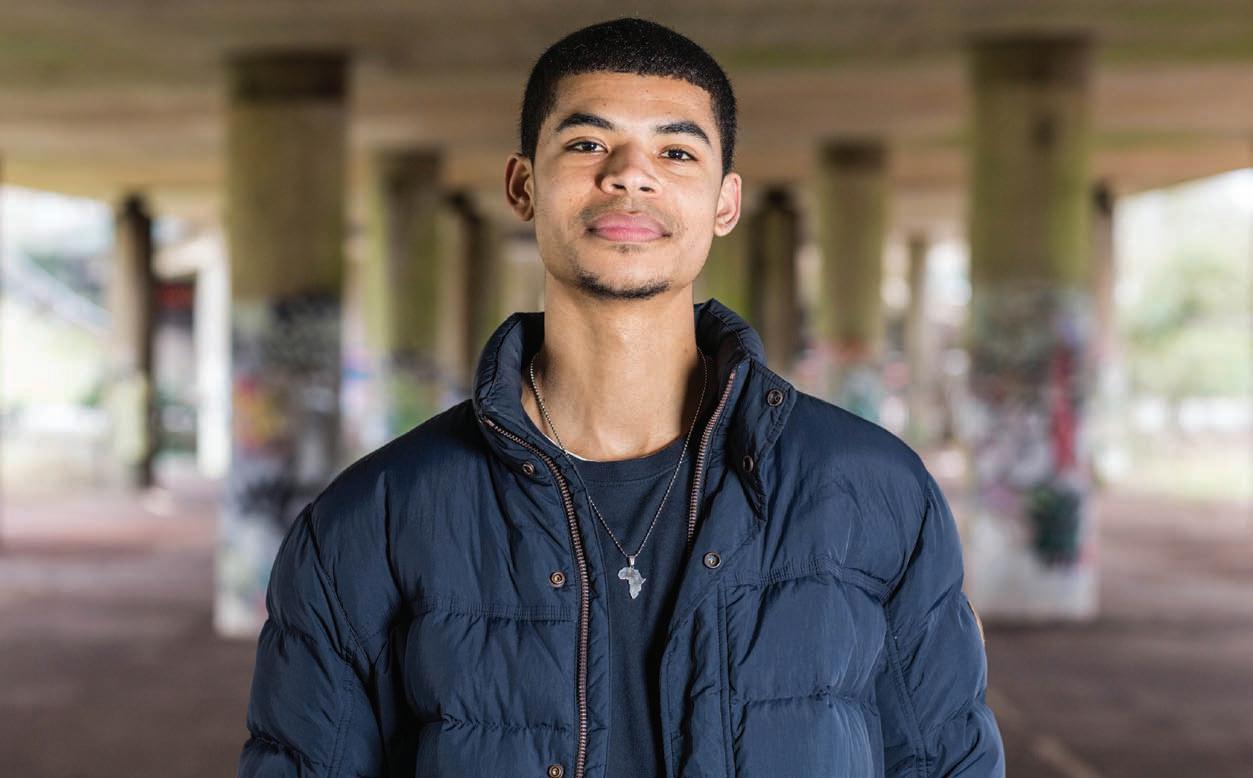FIlmmaking.qxp_Layout 7 18/03/2020 10:12 Page 1
FILMMAKING
Lights, camera, politics
Aiming to counter, with inspirational stories, the one-sided narratives of chaos and conflict presented about countries such as Liberia, Lindsey Parietti never especially set out to study chimpanzees but the cheeky chaps reeled her in, didn’t they?
D
oing her level best to highlight under-covered issues in challenging environments, Lindsey Parietti is a filmmaker and journalist who spent most of her career in Egypt and Africa covering politics before heading to Liberia to make her BAFTA-winning master’s film Blood Island, focusing on abandoned lab chimpanzees. She completed the MA in wildlife filmmaking at UWE in 2017, when she pitched and began work on threepart BBC2 series Baby Chimp Rescue for the BBC Natural History Unit, following the story of life in a home for orphaned baby chimpanzees, run by vet Jimmy Desmond and his wife Jenny. She tells us how the change in direction came about... TBM: Who inspired you to start wildlife filmmaking?
LP: My family instilled a love of nature in us from a young age. I grew up surrounded by forest in upstate New York and we’d hike up the small mountain behind our house and build forts and play pretend, so I guess I always found being in the forest magical. My grandma and great uncle also exposed us to National Geographic magazines and wildlife films, which we used to wait eagerly for every week. But it never occurred to me to pursue anything nature-related as a career until much later. I was on a journalism fellowship in the Democratic Republic of Congo and saw the documentary Virunga. I was already moving away from covering politics as a journalist and towards environmental reporting, but that 64 THE BRISTOL MAGAZINE
|
APRIL 2020
|
No 190
documentary is so powerful and convinced me of the impact film could have on environmental issues. Tell us about that transition from politics to wildlife and environment – have there been any interesting points of crossover so far? I was living in Egypt reporting on politics and breaking news during the 2011 uprising. After a few years, like many journalists there, I became disillusioned with the way the revolution, which had been so hopeful at the beginning, devolved. So many people were jailed and killed and the political situation only seemed to get worse. I felt like my reporting wasn’t having an impact and it was becoming harder to cover politics with the state cracking down on journalists. I wasn’t ready to leave and wasn’t sure what I wanted to do next so I began telling more feature and environmental stories and trying to find positive initiatives to report on amidst a pretty bleak situation. I used to watch BBC wildlife films as an escape and realised I wanted to tell stories about the natural world fulltime. There’s a lot of crossover in the type of wildlife films I want to make – most environmental stories have politics behind them. At first I thought I just wanted to escape to a lush jungle in a beautiful place and be surrounded by nature for work – it sounded ideal. But when I came to Bristol for the UWE master’s programme in wildlife filmmaking it was still stories of social and environmental justice rather than pristine wilderness that I was drawn to.













